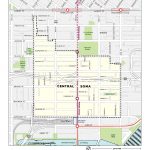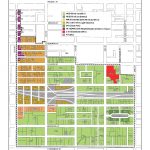TAGLaw West Coast Regional Meeting
March 10-11, 2017
San Francisco, CA
We look forward to hosting you in San Francisco!
AGENDA:
Friday Evening, March 10th
6:00 PM – 9:00 PM
Welcome Reception
Join us for refreshments and hors d’oeuvres as we welcome you to San Francisco at Press Club, a lively local wine lounge in the Financial District.
Location:
Press Club
20 Yerba Buena Lane
San Francisco, CA 94103
(Yerba Buena Lane is the pedestrian-only street spanning Market & Mission Streets, between 3rd & 4th Streets next to the Four Seasons.)
Saturday Morning, March 11th
8:30 AM – 1:00 PM
Program
Check-in and coffee and breakfast begin at 8:30 AM, with the program beginning promptly at 9:00 AM.
The presentations include:
Settlement of In re: Volkswagen “Clean Diesel” Marketing, Sales Practices and Products Liability Litigation
Judge Charles R. Breyer, Senior District Judge for the United States District Court for the Northern District of California and partner with Coblentz Patch Duffy & Bass before his appointment to the bench, will discuss the recent $1.6 billion settlement that resolved lawsuits filed by Volkswagen AG franchise dealerships in the wake of the carmaker’s 2015 diesel emissions scandal.
2017 Financial Outlook and Law Firm Leaders’ Expectations
Citibank will share insights into what’s driving revenue in midsized law firms and highlight what successful firms are doing differently. Law firm leaders’ expectations and a financial outlook for 2017 will also be discussed.
Catapulting Toward the Future: How are law firms focusing on brand, recruiting and innovation?
International architecture and design firm Gensler will discuss how law firms are focusing on brand, recruiting and innovation through design.
TAGLaw Update
Richard Attisha will provide the group with a TAGLaw update.
Location:
Coblentz Patch Duffy & Bass LLP
One Montgomery Tower, Suite 3000
San Francisco, CA 94104
(The entrance to One Montgomery Tower is accessed at 120 Kearny Street between Post and Sutter streets. Please check in at the security desk to gain access to the elevators. We are located on the 30th floor.)
Saturday Afternoon, March 11th
1:00 PM – 2:30 PM
Lunch
Enjoy lunch and tea service at this unique restaurant overlooking beautiful Yerba Buena Gardens.
Location:
Samovar Tea Lounge
730 Howard Street
San Francisco, CA 94103
3:30 PM – 4:30 PM
Guided tour of Matisse/Diebenkorn exhibit
*Optional – please RSVP to evictor@coblentzlaw.com by Friday, March 3rd to reserve your ticket.
Location:
SFMOMA
151 3rd Street
San Francisco, CA 94103
Saturday Evening, March 11th
6:30 PM
Dinner
Enjoy an epic dinner to close the meeting at one of San Francisco’s best restaurants, featuring rustic Italian fare from Michelin-starred chef Michael Tusk.
Location:
Cotogna
490 Pacific Avenue
San Francisco, CA 94133
If you’re staying in town through Sunday, or would like other ideas for fun things to do Saturday afternoon, here are our favorite ways to experience San Francisco:
Explore the historic Ferry Building marketplace, and treat yourself to a self-guided “foodie tour.” Click here for a sample tour itinerary.
Take a stroll or rent a bicycle and ride through Golden Gate Park, filled with gardens, museums, art, flowers, trees, lakes, birds and wildlife. The Park’s many attractions can be found here, and a mobile map can be found here.
Catch a Hop-On Hop-Off bus and take a sightseeing tour of the City. You can purchase a ticket at any of the 40 designated stops around San Francisco. Click here for more information, and here for a map of bus stops.
Take a ferry across the Bay to the picturesque town of Sausalito. Boats depart approximately every 90 minutes from the Ferry Building’s ferry terminal. Click here to view the ferry schedule, and here for things to do in Sausalito.
*Please note the annual St. Patrick’s Day Parade will take place on Saturday, March 11th, and will affect traffic due to closure of parts of Market Street.


